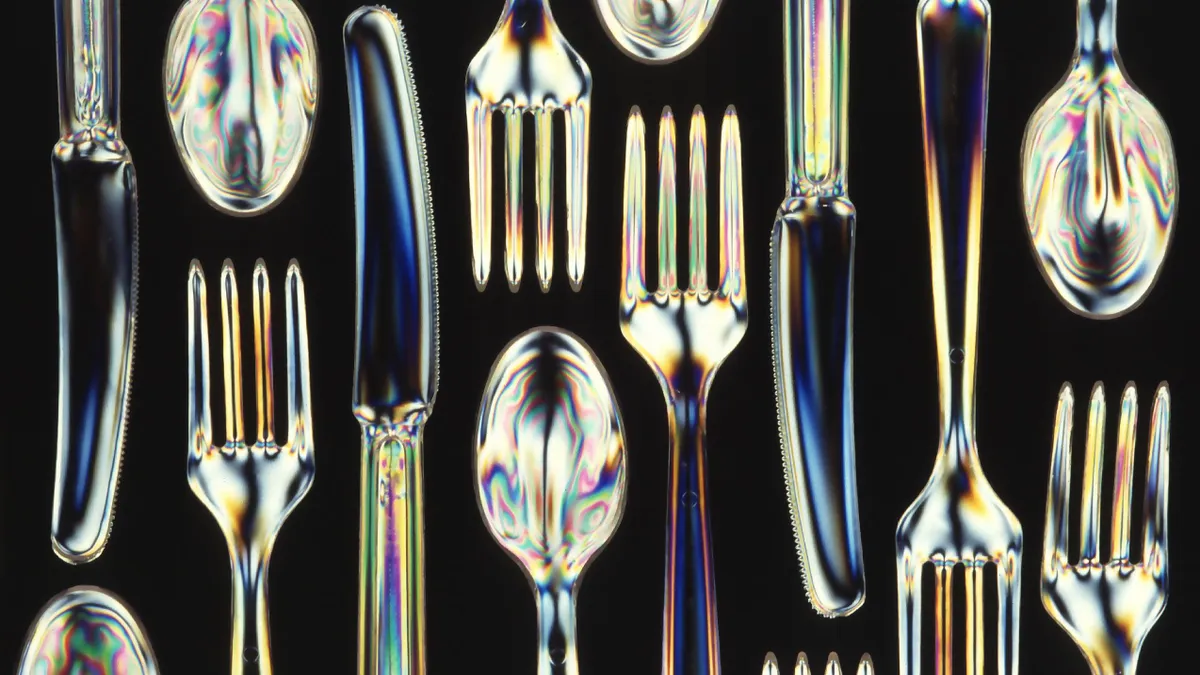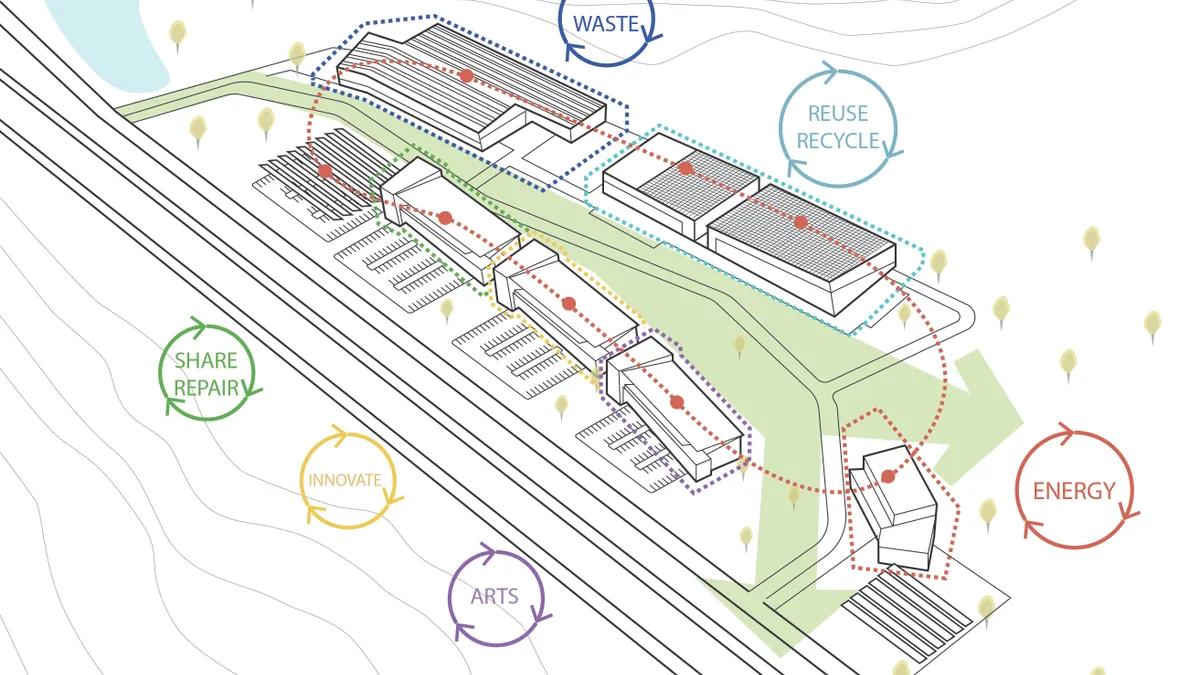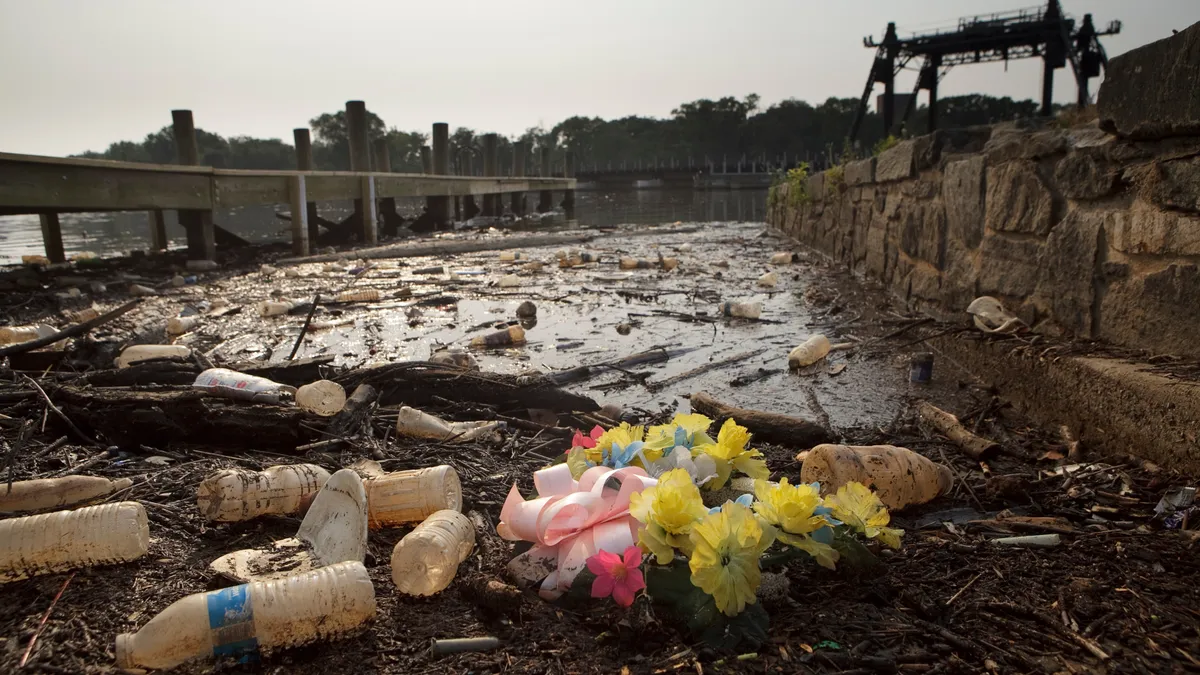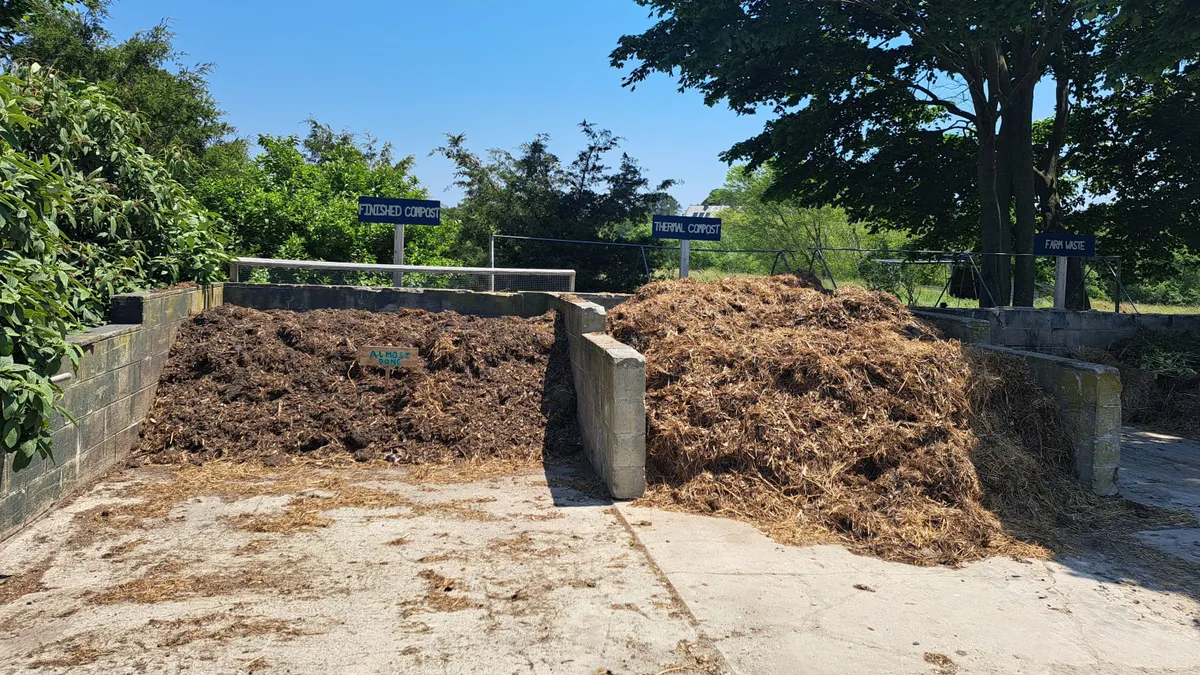There are 200 million tons of plastic in use today, volumes of which will eventually end up in the waste streams harming sea life, devouring landfill space, and gumming up recyclers' equipment. While the push to properly recycle plastics is high, so is the trend to re-engineer the products so they are compostable, and overall safer for the environment — especially as municipalities reach for zero waste goals.
"Compostable products help to make sorting easier for consumers, and are designed to break down in professionally managed composting facilities," said Rhodes Yepsen, executive director of the Biodegradable Products Institute (BPI). And compostable plastics, made from plants rather than oil, have the power to reduce fossil fuel dependence, foster sustainability, and cut food waste in landfills.
But there's confusion about which products are truly compostable, and even doubt about what "compostable" means. Compostable plastics, also known as bioplastics, present other challenges too.
Organizations like the one Yepsen leads are working with plastics manufacturers, composters, and other stakeholders to address the issues, starting with clearly defining "compostable," then helping to design products that work for manufacturers, consumers, and processors.
What is compostable?
For a product — plastic or any other — to be compostable, it must have three features.
"It must disintegrate. It must biodegrade, meaning microorganisms will eat it and process it. And it needs to leave behind no toxic remnants," said Sarah Martinez, sustainability maven of Eco-Products, one of several companies that sells compostable plastic products. Their clients are from the food industry and their supplier is NatureWorks, which makes corn-based plastic pellets that are converted to the company's lines — cold beverage cups, clam shells (hinged to-go boxes), sushi containers, cutlery, and cups with polylactic acid (PLA) lining, among others.
Industry standards lack teeth
"Almost anything is biodegradable over very extended time. Compostability says the product is biodegrading in a certain time frame and that what’s left over is healthy," said Martinez.
There are industry standards to define compostability, but no laws to enforce them. Among resulting challenges is inconsistent decomposition rates from product to product, which can impede commercial composting operations. However this label issue has not gotten by the International Solid Waste Association (ISWA). The organization notes that some biodegradable plastics can be recycled with organic wastes, but heeds warning that they can lead to contamination in other plastic recycling streams.
Therefore, "Managers for food scrap collection programs need to ensure they are only using certified compostable products, which have been independently tested and third-party verified," said Yepsen, forewarning that when potentially problematic biodegradable materials enter the compost stream, they are hard to identify. The BPI maintains a database of all products that it has certified as compostable.
Challenges extending beyond the "gray areas"
Beyond defining the term "compostable," there are many challenges in creating compostable plastics. The materials and end products are not cheap to produce, there's much less bio-based plastic than petroleum-derived plastic, and the technology faces some barriers. For instance, PLA can't handle much heat, limiting its functionality unless product designers invest in a costly secondary process.
Then there is the issue of limited composting infrastructure in the U.S., noted Martinez.
Eco-Product has found a niche in a new market with tough challenges; food service operators willing to invest either because they want to do the right thing or build their brand as an environmentally responsible company. And some cities are banning Styrofoam and rigid, hard polystyrene, creating greater demand.
The company works with sports venues to divert organic waste from landfills, and compostable plastics make it easier to do than traditional food packaging. "Asking fans to separate items into multiple bins is an uphill battle at events like baseball games and concerts. With compostable packaging, both the packaging and the food can go in the compost bin, so it's easy," Martinez said.
The U.S. Composting Council (USCC), BPI, and the Food Service Packaging Institute are helping processors grow a structure to accommodate more than the food and sports industries. BPI and USCC produced a Quick Check Guide for compostable products, and a Compostable Plastics Toolkit to help solid waste professionals determine if a compostable plastics program is a good fit for them.
Eco-Products is among companies that make compostable products based on ASTM standards and provides samples to determine how long it takes to compost them in recyclers’ systems.
"This helps them understand if they may need to run their process longer or at a higher temperature. Or if they need to process less if it is breaking down fast," said Martinez. "We have a long way to go before we have a composting infrastructure to divert from landfill."
But speaking for the company she works for, she added, they will stay with it.
"We feel strongly about the value of (these products’) role in diverting food scraps from landfill."





















